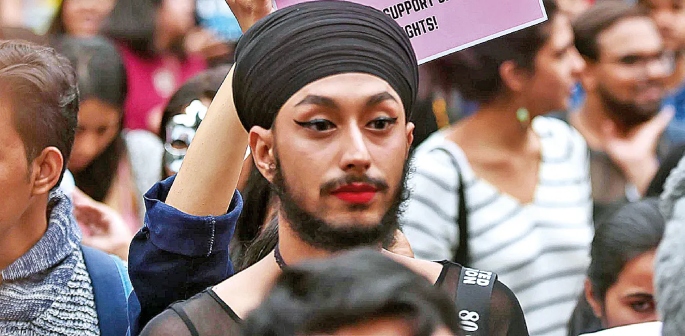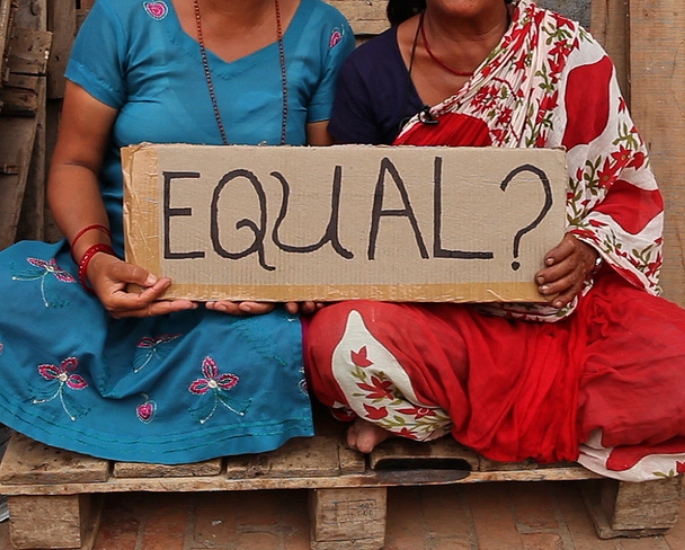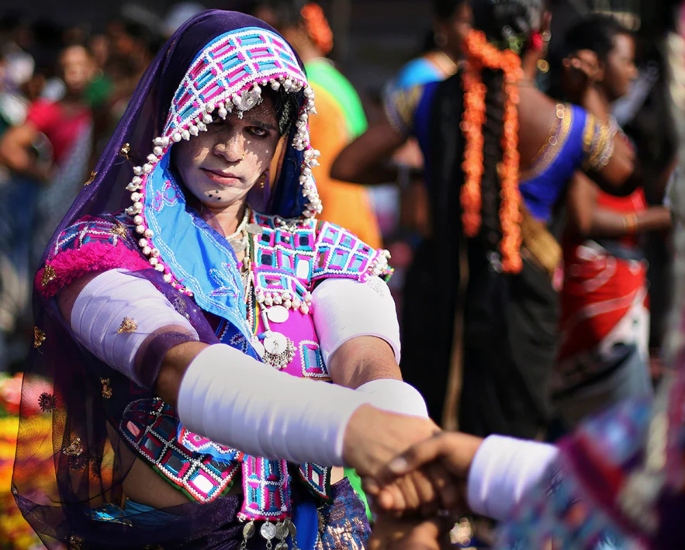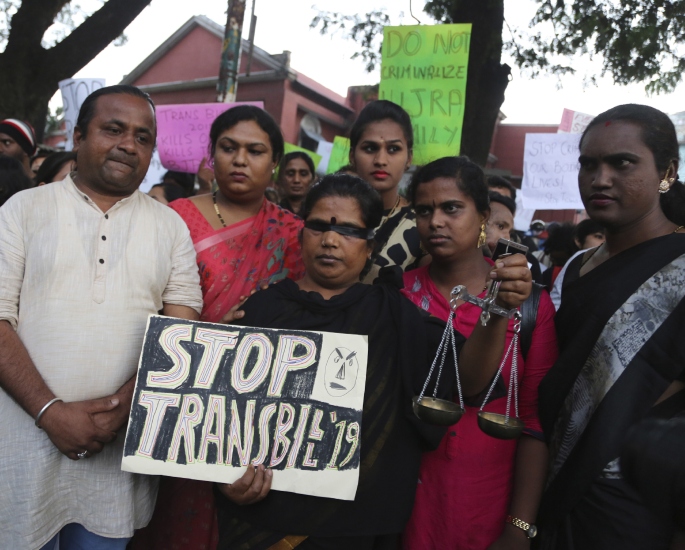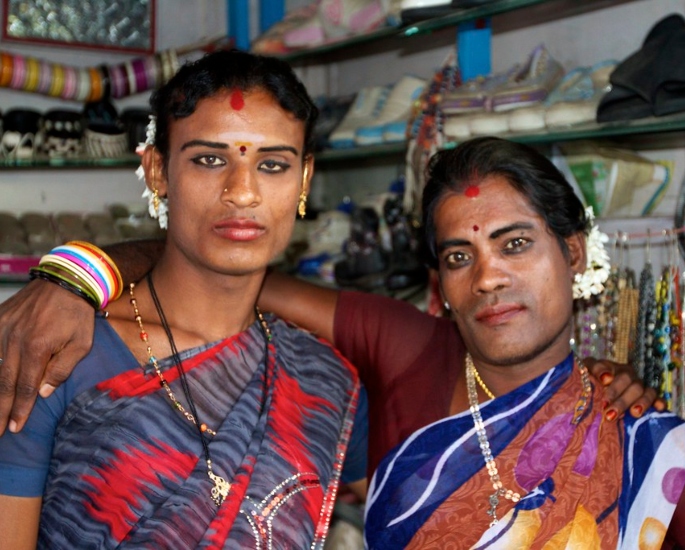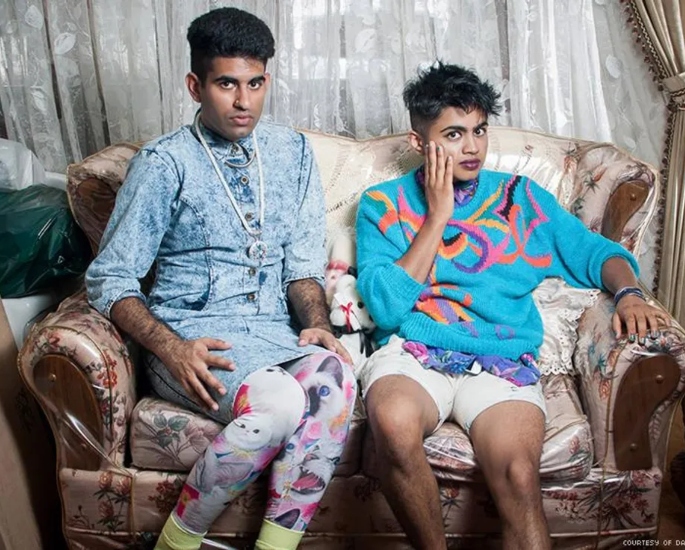"My guru loved me more than my parents"
Transgender (trans) South Asian people face unique challenges related to their gender identity, cultural norms, and societal attitudes.
Discrimination, stigmas, and violence are just a few of the challenges faced by trans-South Asians.
It’s extremely tiring for this community to try and navigate their lives without receiving some form of backlash from their own community.
This can stem from a lack of education around LGBTQ but also the adamancy that the sexuality spectrum is just one dimension.
Due to this, a lot of South Asians across the world face massive challenges and in some cases, in harsher environments, compared to other cultures.
Discrimination
Trans South Asians face discrimination in many aspects of their lives, including education, employment, housing, and healthcare.
Discrimination can take many forms, from outright refusal to hire or house transgender individuals to the more subtle ways in which people are made to feel excluded.
For instance, a transgender woman in India was denied employment because of her gender identity, despite being qualified for the job.
In Pakistan, hijras (transgender women) are often forced to live in isolated communities, where they face discrimination and violence.
Discrimination against trans individuals has significant impacts on their well-being and quality of life.
This can include difficulties accessing education, employment, and housing, which can contribute to poverty and social exclusion.
Discrimination can also lead to mental health problems such as depression, anxiety, and low self-esteem.
Additionally, it perpetuates harmful stereotypes and prejudices, which can lead to further outcasts.
This is just as apparent in other parts of the world, such as the UK.
A large proportion of trans-British Asians are shunned by their peers or employers due to their identity.
Whilst the movement for equality is bigger in the UK, a lot of British Asians feel they cannot freely live their lives and tend to be cautious about disclosing their true selves to society.
Addressing discrimination requires both legal and social change, as well as greater awareness and education about the experiences of trans individuals.
Cultural Stigma
In many South Asian cultures, gender non-conformity is seen as taboo, and trans people are often ostracised by their families and communities.
This can lead to social isolation, depression, and anxiety.
For example, Bejili, one of six hijras in a Peshawar group spoke about how she was rejected by her family and thrown out of her home:
“My guru loved me more than my parents.
“It is only fair that I am helping him now that he is old.”
She also faced physical violence from the police and other members of society.
This cultural stigma can result in a lack of social support and opportunities for personal growth, which can contribute to mental health problems like paranoia.
In addition, cultural stigma can result in violence and harassment, further perpetuating discrimination and inequality.
Addressing cultural stigma against trans individuals requires a shift in societal attitudes and beliefs, as well as the provision of support and resources for trans individuals.
Overcoming cultural stigma can contribute to a more inclusive and equitable society, promoting social cohesion and enhancing individual and community well-being.
Lack of Legal Protection
In South Asian countries specifically, there are no legal protections for trans people, and they may face discrimination and harassment without any recourse.
Whilst there are some laws protecting the LGBTQ community as a whole, these are rarely enforced by police officers.
Trans people may also be denied access to basic rights.
From 2008 to 2016, there were reports of 58 murders of transgender individuals in India, 37 in Pakistan, 2 in Nepal, and 2 in Bangladesh in South Asia.
However, the real figures will be much higher due to under-reporting and police officials who are complicit in the lack of protection over these individuals.
As emphasised by the International Commissions for Jurisits Asia-Pacific Director, Frederick Rawski:
“Violence, harassment, extortion, rape and murder of transgender persons continue to be committed.”
“Police frequently refuse to file complaints, and are often themselves complicit in violence against transgender persons.”
Addressing the lack of legal protection for trans individuals requires advocacy and policy change, which can promote equal rights and protections for all individuals regardless of gender identity.
This can lead to a more equitable society, where individuals have equal access to opportunities and resources.
Limited Access to Healthcare
Trans people often face significant barriers to healthcare, including discrimination from healthcare providers.
For instance, in Bangladesh, trans people have limited access to gender-affirming healthcare, and many have to travel to neighbouring countries for treatment.
This can result in serious health problems, including infections and other complications.
This limited access can have serious consequences for the physical and mental health of trans individuals.
This can result in health problems such as infections, hormone imbalances, and other complications.
Limited access to healthcare can also contribute to social exclusion and discrimination, as trans individuals may avoid seeking healthcare out of fear of discrimination or harassment.
There is evidence presented by The Guardian that health services are failing South Asians in the UK for dementia.
The language barrier and “lack of culturally appropriate service provision” means this community is not getting properly treated.
This transfers to trans people.
If the UK’s health service cannot aid those with mental illnesses, then how would they respond to British Asians in a more confined community?
Providing access to gender-affirming healthcare can promote better physical and mental health outcomes for trans individuals.
Violence
Trans people are at a high risk of violence, including physical and sexual assault, harassment, and hate crimes.
In 2020, a transgender woman in Pakistan was brutally murdered by a group of men who had previously harassed her.
The police failed to take action, and the case sparked outrage and protests in the country.
Furthermore, in May 2016, a hijra activist called Alisha died after being shot multiple times in Peshawar.
Her friends claimed hospital staff failed to give her proper emergency medical care, in part because of objections to her being treated in a female ward.
Violence against trans individuals can have significant physical, emotional, and societal impacts. This can result in physical injury, emotional trauma, and social exclusion.
One startling discovery was from a 2022 research study in New Zealand.
The case interviewed over 13,000 individuals who identify as part of the LGBTQIA+ community.
This included those from South Asian backgrounds and it found:
“93% of respondents did not have access to ethnic queer stories when they first identified as one.
“84% have been discriminated against, and 44% have experienced violence.”
It shows the magnitude of the aggression towards LGBTQIA+ and also trans people under that umbrella – and this is just from one country.
South Asians across the globe are continuously assaulted or killed due to their trans identity.
Addressing violence against trans individuals requires both legal and social change, including the provision of legal protections and advocacy for policy change.
Reducing violence against trans individuals can contribute to a more inclusive and safe society for all individuals, promoting social cohesion and individual and community well-being.
Trans South Asians face a wide range of challenges.
Discrimination, cultural stigma, lack of legal protection, limited access to healthcare, and violence are just a few of the challenges faced by these people.
Addressing these challenges requires both legal and social change, as well as greater awareness and education about the experiences of trans individuals.
By working together to address these challenges, we can create a more inclusive and supportive society for all.



















































